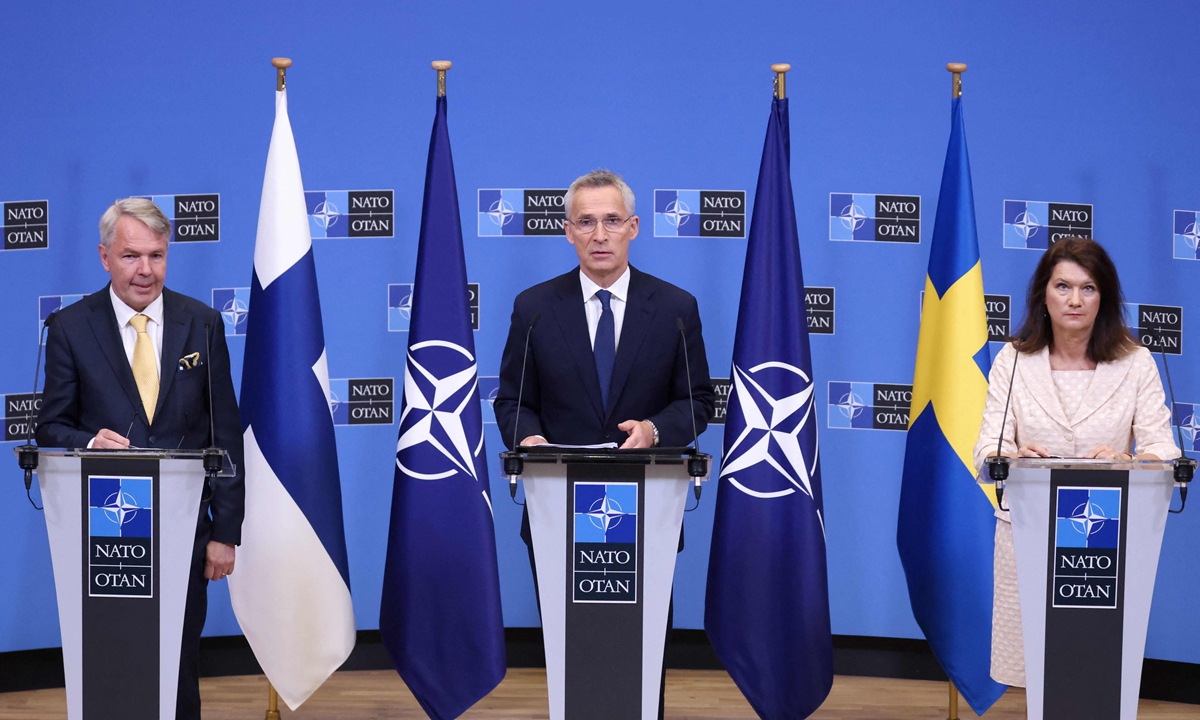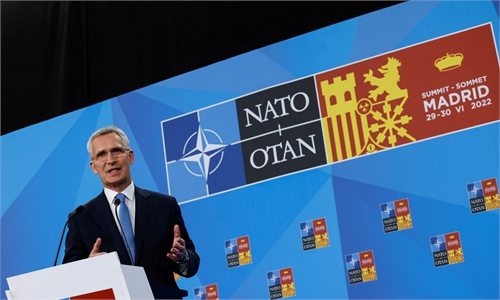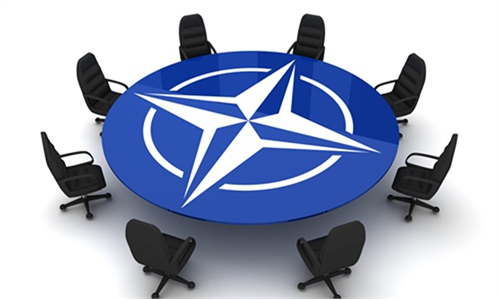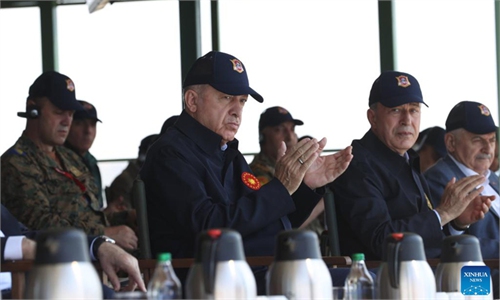Serious crisis, worse security situation lie ahead as Finland, Sweden advance to final stage of NATO membership

(Left to right) Finnish Foreign Minister Pekka Haavisto, NATO Secretary General Jens Stoltenberg and Swedish Ministry for Foreign Affairs Anne Linde give a press conference after the signing of the accession protocols of Finland and Sweden at the NATO headquarters in Brussels on July 5, 2022. Photo: VCG
The 30 NATO members signed off on the accession protocol for Finland and Sweden in Brussels on Tuesday, allowing the two Nordic countries to advance toward the final stage of becoming formal and fresh members of the US-led world's largest military club after obtaining the approval of the two countries' memberships in each NATO member state's legislative institutions.
Chinese experts said it still takes at least a few months before final membership is guaranteed. The latest development, which signals the end of the two Nordic countries' longstanding gesture of non-military alignment, would pave the way for greater confrontation and division in Europe, and the tragic escalation of military conflict is not out of the question.
NATO Secretary-General Jens Stoltenberg described the day as "truly a historic moment" for Finland, for Sweden, for NATO, and "for our shared security." Stoltenberg said with 32 members, NATO will be even stronger and people will be even safer, AFP reported.
The two Nordic nations submitted their NATO applications in May. On Tuesday, Swedish Foreign Minister Ann Linde expressed gratefulness to allies, saying the country's NATO membership would add stability in the Euro-Atlantic area, AFP reported. Finnish Foreign Minister Pekka Haavisto said he looks forward to a "swift ratification process."
Observers predicted that if the process goes smoothly, Sweden and Finland could become full NATO members as soon as the end of this year. If there are some hiccups, such as Turkey's resistance, the Nordic countries' membership would be settled in the first half of 2023, said the observers.
The entry of neutral countries like Sweden and Finland into NATO would have a huge impact on regional security, as European countries which are not NATO members yet could consider joining the military bloc and move away from neutrality, a Beijing-based international affairs expert told the Global Times on condition of anonymity on Tuesday.
"This will not help resolve or ease the conflict between Russia and Ukraine, and may instead magnify tragedy. The greater NATO's presence in Europe's independent security framework means more divisions and confrontations are highly possible," the expert said.
"NATO is a strategic tool for the US. It is not necessarily in Europe's interest, but in America's strategic interest," the expert said.
And Europe seems to be moving in the direction planned by the US. According to a CNN report released on June 29, US President Joe Biden suggested to Finland's President Sauli Niinisto to join NATO in a phone call in December, before the Russia-Ukraine conflict occurred. CNN said "the efforts to bring Finland and Sweden into NATO were both the work of months."
Analysts said for Russia, the credibility of the US and NATO has already bankrupted NATO. The bloc had promised not to expand beyond Russia's borders, but Poland, Hungary and the Czech Republic, former Warsaw Pact members, joined NATO in March 1999, with multiple expansions in the next two decades.
During the NATO Summit in Madrid, Stoltenberg said that the decision made in Bucharest on membership for Ukraine was reiterated during the meeting. In the 2008 NATO Summit in Bucharest, Ukraine was first offered to join the military bloc.
It seems that the conflict between Russia and Ukraine does not affect NATO's plan to accept Ukraine's membership in the long run, which means tensions between NATO and Russia will continue to rise, the expert said, "so a bigger crisis may lie ahead, and the security situation in Europe is far from positive."
Russian President Vladimir Putin warned on June 29 that Moscow "would be obliged to respond symmetrically" if NATO sets up a military infrastructure in Sweden and Finland, media reported.
On June 30, Stoltenberg said NATO has "a co-responsibility to prevent an escalation beyond Ukraine," and "we will see suffering, damage, and death on a scale we haven't seen yet" if the ongoing conflict escalates to a war between NATO and Russia.
Russian Foreign Minister Sergey Lavrov said at a press conference on Monday that the US won't ask Finland's opinion if Washington decides to deploy NATO infrastructure to the country, following Finnish Foreign Minister Pekka Haavisto's remarks that there was no need to deploy NATO forces to the country at the moment, the Russian news outlet Tass reported.
The two countries' accession process was initially blocked by Turkey, a NATO member that raised concerns over the fight against terrorism. After signing a memorandum of understanding with Finland and Sweden, Turkey lifted its veto ahead of the NATO summit in Madrid.




